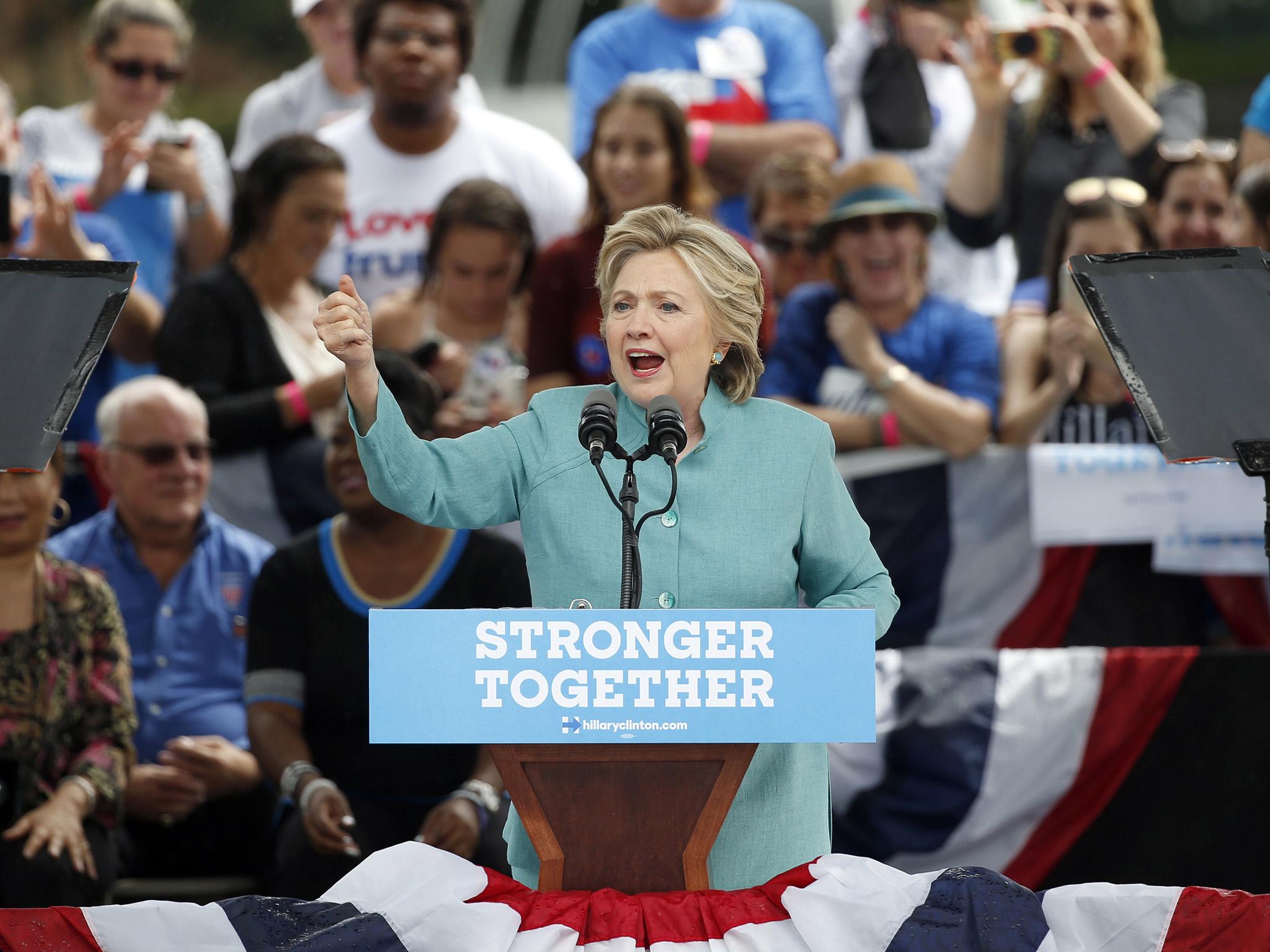Want to know how the US election results will affect the rest of us? Look to these signs in the global economy
Foreign reactions are important: Russia matters to some extent and a Clinton victory would be seen very negatively. But China matters more because of its trade relationship with the US


Your support helps us to tell the story
From reproductive rights to climate change to Big Tech, The Independent is on the ground when the story is developing. Whether it's investigating the financials of Elon Musk's pro-Trump PAC or producing our latest documentary, 'The A Word', which shines a light on the American women fighting for reproductive rights, we know how important it is to parse out the facts from the messaging.
At such a critical moment in US history, we need reporters on the ground. Your donation allows us to keep sending journalists to speak to both sides of the story.
The Independent is trusted by Americans across the entire political spectrum. And unlike many other quality news outlets, we choose not to lock Americans out of our reporting and analysis with paywalls. We believe quality journalism should be available to everyone, paid for by those who can afford it.
Your support makes all the difference.This will be a difficult week for the world’s business and financial communities. On a very long view, the outcome of the presidential election may not be that important, even if that sounds strange right now when it seems very important indeed. The US economy will remain the most inventive, the most innovative and indeed the world’s largest for another decade at least.
But the vote, and more particularly the reaction to it, will tell us a lot about the direction of the US economy over the next five years, and here’s what I shall be looking for.
First, the presidential vote itself. Is it clear? Is there a danger that Donald Trump might win the popular vote but not the electoral college? That would be the worst outcome of all, for much of America – and not just the “fly-over states” as they are disparagingly called by the US elite – would be outraged. An outraged country would be a dreadful inheritance for a new president.
Second, the make-up of Congress. This is not just a question of which party controls the two houses, though of course that matters. It is who will be the dominant politicians, particularly in the House. The issue here is whether Congress will be prepared to work, at least to some extent, with the new administration. The system was designed to be obstructive, with the famous checks and balances, but there is a difference between constructive opposition and cussed blocking of everything.
Third, how negative will the market reaction be by the end of the week? To phrase it in that way may seem odd, but it is hard to see much of a positive reaction, whatever the outcome. Market commentators have tried to “game” the different results, and tried to forecast how markets would react to each: a Trump victory would be bad for equities and for the Mexican peso and Canadian dollar – and so on. I don’t think this is a very helpful approach, simply because we don’t know how markets react in these circumstances. Look at the Brexit vote. How many people saw zero impact on the economy but a huge hit to the pound?
Why is it important to consider the end of the week, rather than Wednesday morning? Because the first reaction to anything is usually wrong. Simple as that.
Next, look at foreign reaction, particularly from China. Russia matters to some extent and a Clinton victory would be seen very negatively. But China matters more because of its trade relationship with the US. Don’t expect any sudden reaction but wait a few days (as with the markets) and listen to when the Chinese press and broadcasters say. I expect some contempt whatever the outcome, but detail will be the key.
Finally, look at the gold price. Why? Because it indicates fear. There is an index in Chicago, dubbed the fear index, which measures volatility, but the gold price is core. Are people round the world scared by the outcome? If the answer is yes, they will buy gold. If not, they will sell it.
The world economy is fragile at the moment – not as fragile as it was when President Obama first took over, but fragile nonetheless. It craves reassurance. It will not be easy for either candidate to give reassurance, but that is one of the many tasks that he or she will have to tackle.
Join our commenting forum
Join thought-provoking conversations, follow other Independent readers and see their replies
Comments